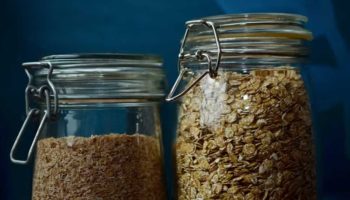To get rid of the weeds that invade our garden, it is not necessary to resort to chemical herbicides, which are certainly effective, but not at all ecological and very expensive. We can try to get rid of weeds with some natural, completely ecological and much cheaper means. Let’s see how to get rid of weeds once and for all.
Anyone who owns a garden or lawn knows how difficult it is to keep the lawn clean and tidy, as it is often infested with weeds that are difficult to remove. These weeds are very resilient and reappear in a very short time after being pulled out. Sometimes the only solution seems to resort to chemical herbicides and herbicides, but they are solutions that are not ecological at all, highly polluting and also very expensive. So, what can we do to get rid of weeds once and for all? Simple, we can use natural, ecological, effective and cheap remedies such as salt, vinegar and lemon juice. Let’s see in detail how to get rid of weeds with these ecological and economical solutions without using herbicides.
-
with salt and vinegar
Salt and vinegar are great for killing weeds, either individually or in combination. Here’s how to make a natural herbicide with very few ingredients.
Ingredients:
- Half a tablespoon of salt
- 2 tablespoons of vinegar
- 2 cups of water
- A few drops of ecological washing-up liquid
Preparation:
Let’s take an old bottle to be recycled and pour the 2 cups of water into it. At this point, we also add the salt, vinegar and drops of ecological detergent. Close the bottle and shake it to mix the solution well before using it. We pour the liquid abundantly on the weeds and the next day they will be wilted and ready to be eliminated. Agents like bicarbonate and dishwashing liquid actually weaken the plant and make it “burn” slowly, so removing it is really easy.
-
With baking soda
Let’s take some baking soda and sprinkle the powder on the grass with a spoon. If we don’t like seeing the white powder on the lawn, we can also dissolve it in some hot water and apply it directly to the plants in the same way. Even with this super cheap and effective method, any weeds will be a thing of the past the next day. In fact, bicarbonate increases the salt content of the soil and causes weeds to die.
-
With fine salt
Against weeds we can also use very simple table salt, just dilute 1 cup in 2 cups of water and wait until it boils. At this point, mix well so that it dissolves completely, wait until the water warms slightly and then pour generously on the plants. Our patio will no longer look like a haunted house!
-
with boiling water
Boiling water is one of the easiest, cheapest, and most environmentally friendly remedies for weeds. Just pour it on your weeds and you will see them die instantly.
-
With sugar
Like salt, sugar is also capable of killing weeds. All we need to do is spread a generous handful around the base of the weed, forming a layer about two inches thick. Soon the weeds will die.
-
With lemon juice
Thanks to the citric acid contained in its juice, lemon burns weeds and is easier to remove. We can spray it purely on weeds or mix it with vinegar and boiling water for increased effect.
-
With alcohol
Alcohol dehydrates plants, so we can spray it on weeds to kill them. However, we must be very careful not to get it on the rest of the lawn and on the other plants if we don’t want them all to die!
-
With vodka
Vodka contains alcohol, so we can use it as a natural herbicide. To make its action even more effective, we can mix it with hot water and a few drops of ecological dishwashing liquid.
-
With a mulching sheet
If there are really too many weeds, a good solution can be to cover the infested part of the soil with a mulch sheet, which prevents the growth of weeds. It is not aesthetically pleasing, but certainly ecological and economical.
-
With manual clearing
If there are not many weeds, we can try to uproot them manually, protecting our hands with garden gloves or with a mechanical herbicide. The best time is after watering the lawn or after rain, when the soil is moist and softer.



